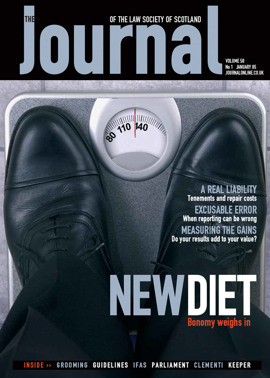Private bills and public interest
Although the Scottish Parliament has dealt with a number of private bills since its creation, the first private bill passed by the Scottish Parliament to authorise a major transport infrastructure project (“a works bill”) was the Stirling-Alloa-Kincardine Railway and Linked Improvements (Scotland) Bill. This Bill, seeking powers in connection with a railway scheme, received Royal Assent on 10 August 2004. The Scottish Parliament is now considering three new private bills dealing with transport infrastructure projects, with further works bills on the horizon.
For those closely involved in the private bill process, it is time-intensive and requires the allocation of significant resources to meet legislative requirements. The process involves three main stages.
Three hurdles to clear
At preliminary stage, a private bill committee considers and reports on the general principles of a private bill and whether it should proceed as a private bill. A private bill committee gives preliminary consideration to objections and rejects objections where the objector’s interest is not clearly adversely affected. It also decides whether accompanying documents lodged with a bill comply with parliamentary standing orders. A bill then goes to the Parliament sitting in plenary session for a debate and vote. A vote in favour will see the bill proceed to consideration stage. A vote against will mean that a bill will fall.
At consideration stage, a private bill committee considers the details of a bill and the details of objections. This phase of consideration stage is inquiry-based. A private bill committee then proceeds to a legislative phase, considering and disposing of amendments lodged to the bill.
At final stage, the full Parliament considers further proposed amendments to a bill as amended at consideration stage. Finally, the Parliament votes on whether a private bill should be passed.
In anticipation of an increasing workload on private legislation, the Parliament’s Procedures Committee has undertaken an inquiry into the private bill process. It is seeking to establish whether there is scope for streamlining the process, particularly in relation to “works” bills. The Committee is specifically to consider what options exist to reduce the Parliament’s responsibility for such bills, including the possibility of adopting an equivalent procedure to that provided by the Transport and Works Act 1992 (“T&W Act”).
Enacted by order?
An equivalent to the T&W Act procedure would involve the adoption of an order-making process to authorise infrastructure projects. Such a procedure has been adopted in England and Wales under the T&W Act. The procedure could be expected to result in a greater role for the Scottish Executive in authorising powers, and a reduced role for the Scottish Parliament.
Although the Parliament requires to consider issues of effectiveness and efficiency in considering how to streamline the private bill process, it also needs to balance such considerations against overarching issues of transparency, scrutiny and democratic participation.
Whilst facilitating some streamlining of process and reducing the claim on MSPs’ time, a T&W Act procedure for Scotland could lead to a reduction in the transparency, scrutiny and participation that is possible through the use of a private bill committee.
An alternative approach to the current process would be the use of a reporter appointed by, and accountable to, Parliament, to carry out functions on behalf of each private bill committee. A parallel for the adoption of a system of reporters can be found in the use of reporters in planning inquiries. Functions of a parliamentary reporter might include scrutinising accompanying documents for compliance with the standing orders, assessment of points raised in objections, and provision of advice to Parliament in relation to further evidence required. Provision should, of course, be made for a mechanism to enable promoters and objectors to make representations in relation to the functions delegated to a reporter.
The Procedures Committee has now received written evidence and taken oral evidence. Some committee members have undertaken a fact-finding visit to Dublin, learning from the Irish experience, where transport bills which seek to implement public policy are not dealt with as private bills.
It is understood that the Procedures Committee will report on this matter in 2005. In reaching a conclusion, it is hoped that the Committee adheres to the principles outlined by the Consultative Steering Group and recommends a process permitting transparency, scrutiny and participation, and where elected representatives are afforded a proper opportunity to debate and decide upon major transport infrastructure works in Scotland.
Fiona Killen, Anderson Strathern
In this issue
- Riding the wave of change
- Last stand for the defence
- Losing the wait
- What right to be wrong?
- Prevention as the cure
- No room for half measures
- Poles apart
- Get IT right
- The value proposition
- A time for resolution
- When it falls, it falls
- Round the houses
- Private bills and public interest
- Charging Peter to pay Paul
- Fair pay for liquidators
- Website reviews
- Book reviews
- Fair notice?
- The new title conditions






